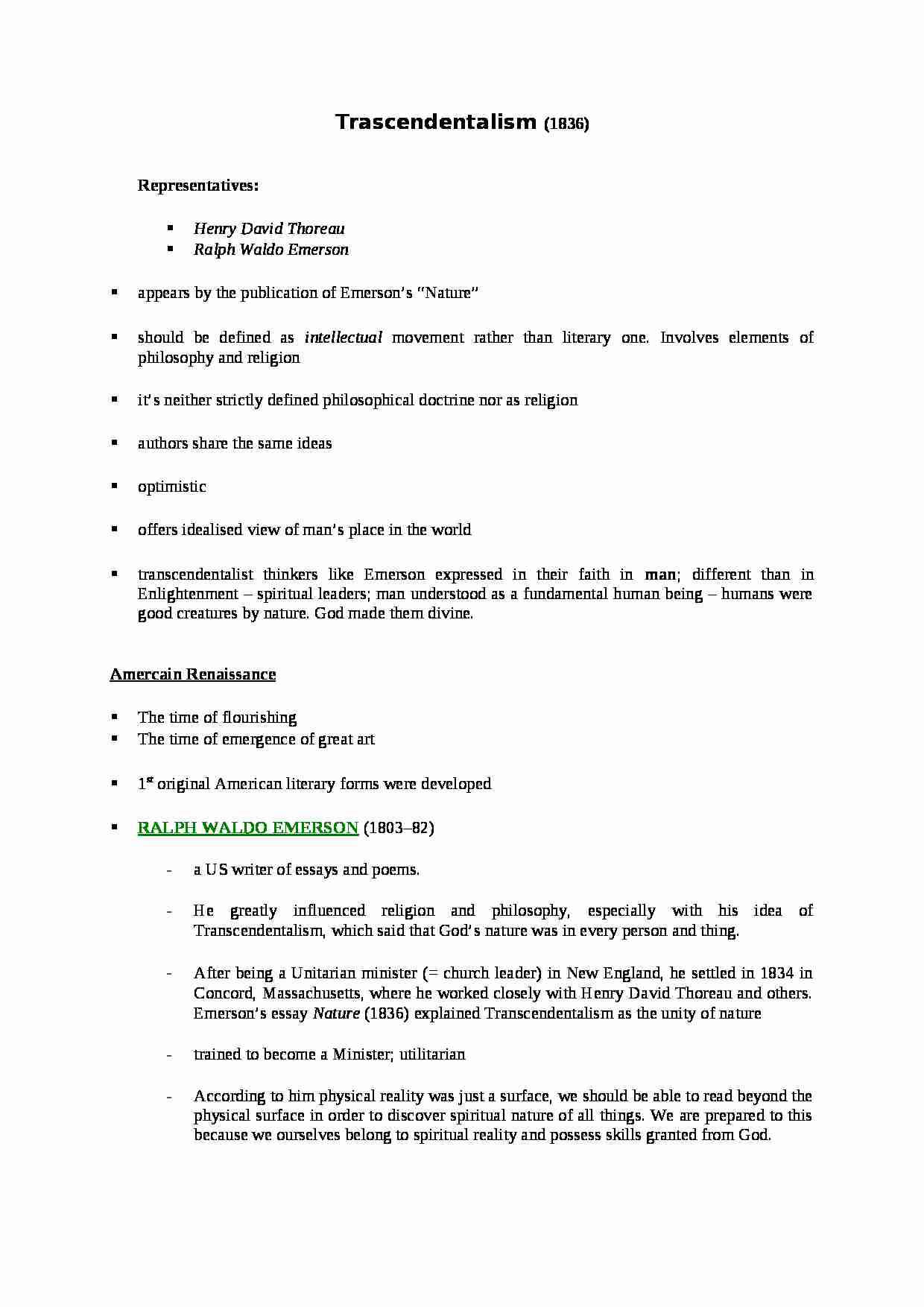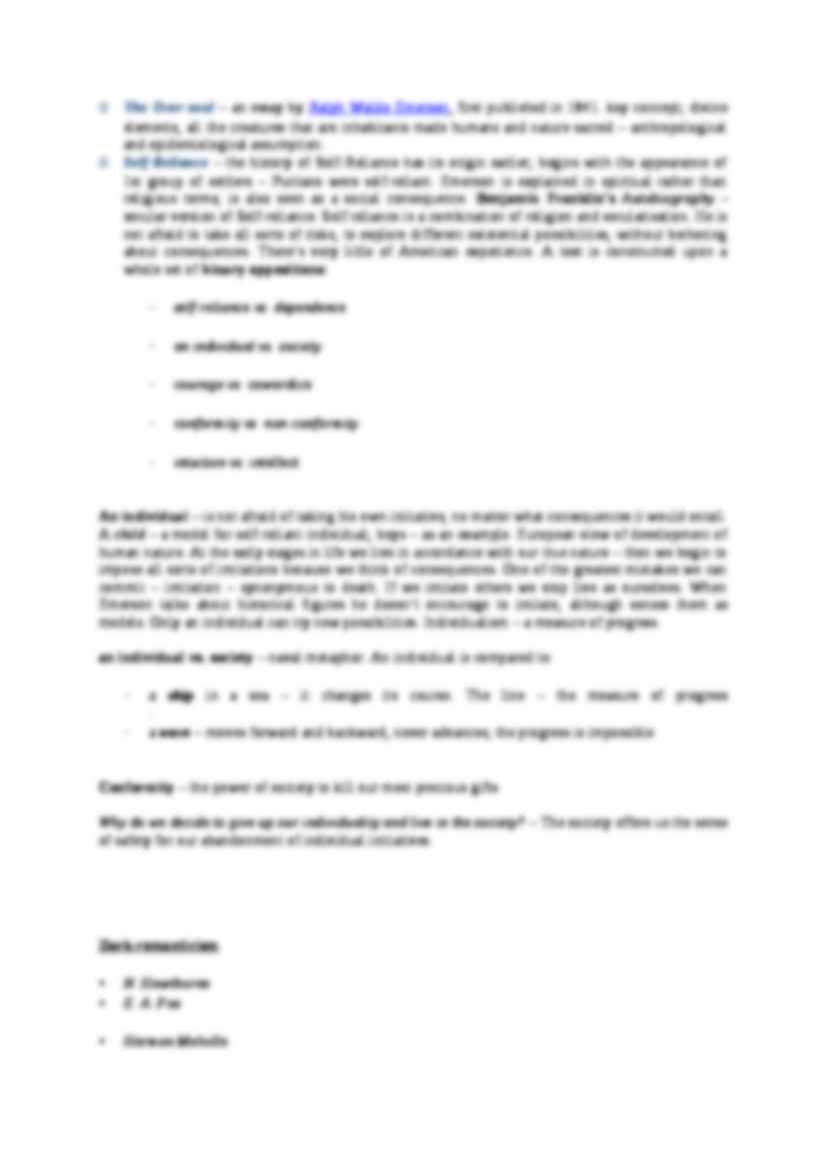To tylko jedna z 3 stron tej notatki. Zaloguj się aby zobaczyć ten dokument.
Zobacz
całą notatkę



Trascendentalism (1836)
Representatives:
Henry David Thoreau
Ralph Waldo Emerson
appears by the publication of Emerson's “Nature”
should be defined as intellectual movement rather than literary one. Involves elements of philosophy and religion
it's neither strictly defined philosophical doctrine nor as religion
authors share the same ideas
optimistic
offers idealised view of man's place in the world
transcendentalist thinkers like Emerson expressed in their faith in man; different than in Enlightenment - spiritual leaders; man understood as a fundamental human being - humans were good creatures by nature. God made them divine.
Amercain Renaissance
The time of flourishing The time of emergence of great art
1st original American literary forms were developed
Ralph Waldo Emerson (1803-82)
a US writer of essays and poems. He greatly influenced religion and philosophy, especially with his idea of Transcendentalism, which said that God's nature was in every person and thing.
After being a Unitarian minister (= church leader) in New England, he settled in 1834 in Concord, Massachusetts, where he worked closely with Henry David Thoreau and others. Emerson's essay Nature (1836) explained Transcendentalism as the unity of nature
trained to become a Minister; utilitarian
According to him physical reality was just a surface, we should be able to read beyond the physical surface in order to discover spiritual nature of all things. We are prepared to this because we ourselves belong to spiritual reality and possess skills granted from God.
The Over-soul - an essay by Ralph Waldo Emerson, first published in 1841. key concept; divine elements, all the creatures that are inhabitants made humans and nature sacred - anthropological and epidemiological assumption.
Self-Reliance - the history of Self-Reliance has its origin earlier; begins with the appearance of 1st group of settlers - Puritans were self-reliant. Emerson is explained in spiritual rather than religious terms; is also seen as a social consequence. Benjamin Franklin's Autobiography - secular version of Self-reliance. Self reliance is a combination of religion and secularisation. He is not afraid to take all sorts of risks, to explore different existential possibilities, without bothering about consequences. There's very little of American experience. A text is constructed upon a whole set of binary oppositions:
self-reliance vs. dependence
an individual vs. society courage vs. cowardice
conformity vs. non-conformity
intuition vs. intellect
... zobacz całą notatkę






Komentarze użytkowników (0)